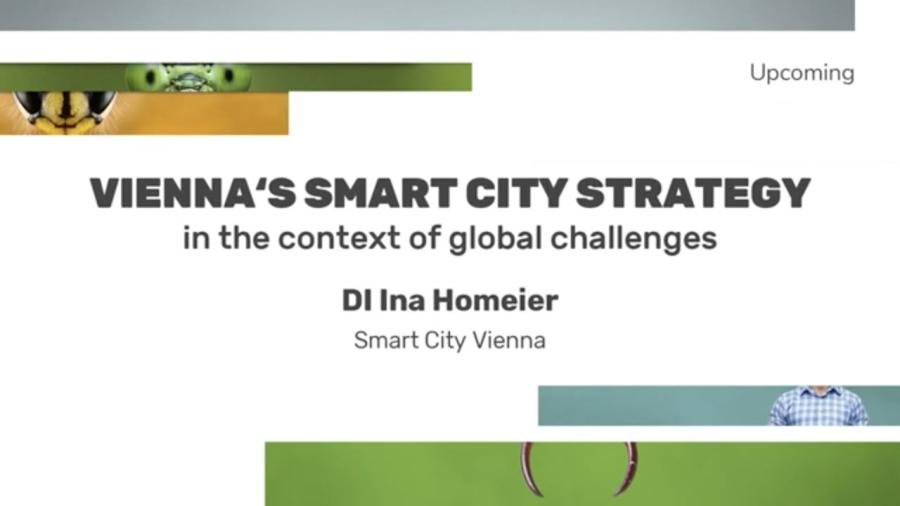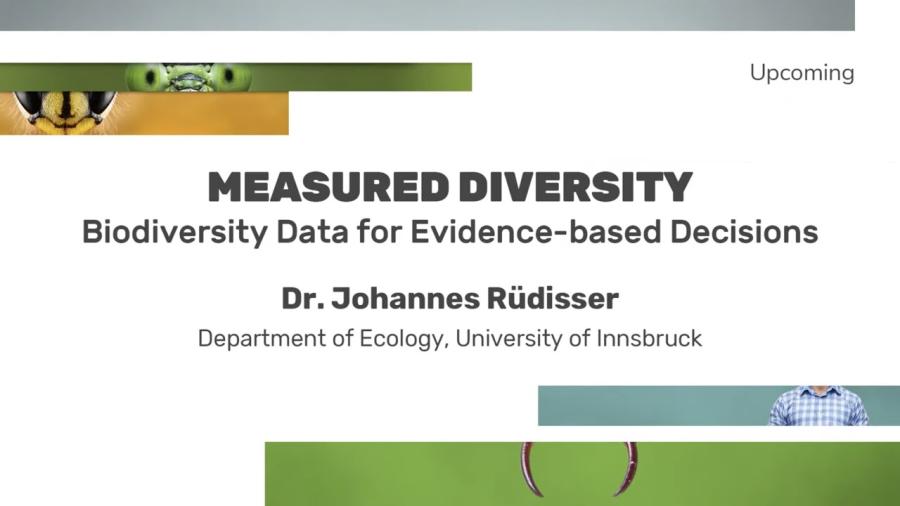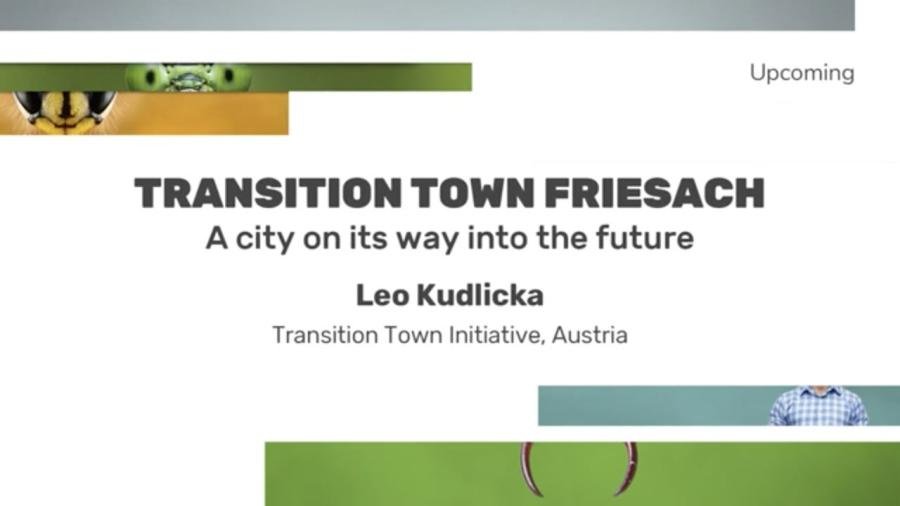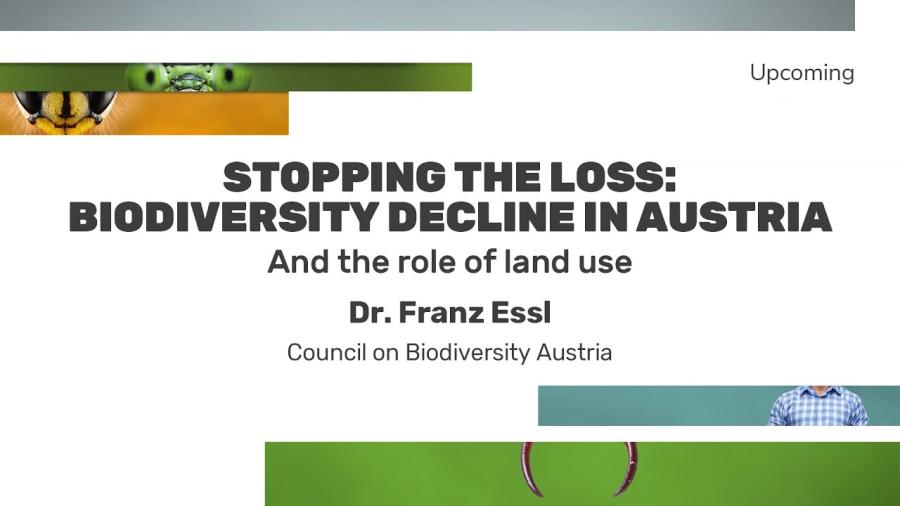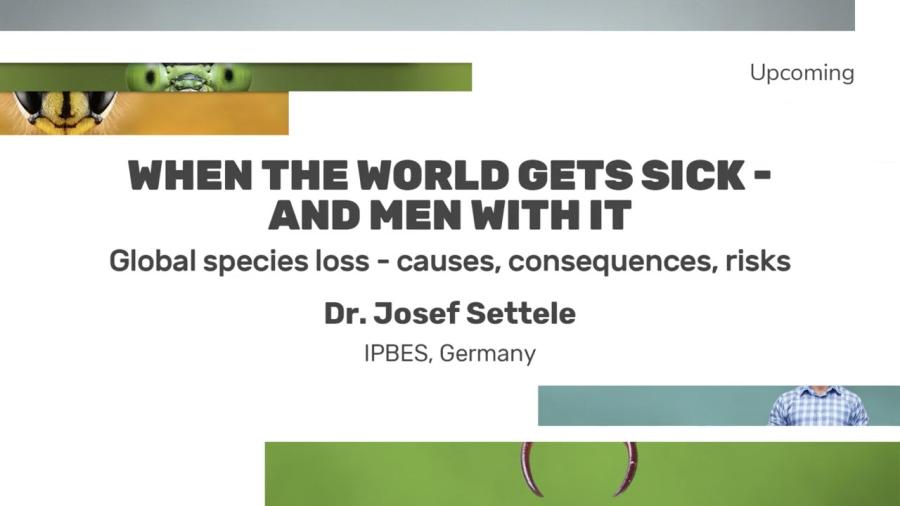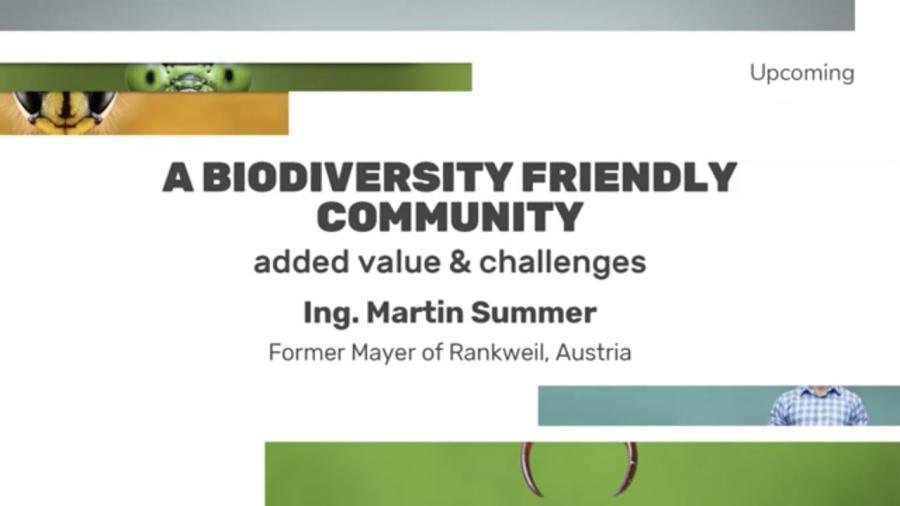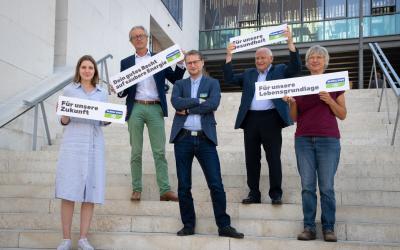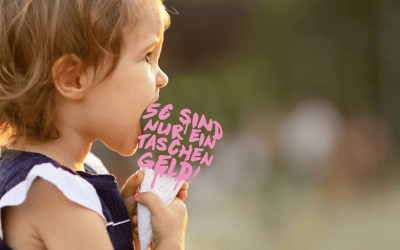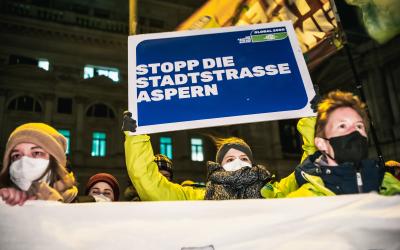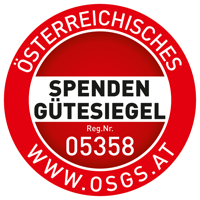Watch the presentations of the conference "Biodivesity in cities and municpalities of the future" here.
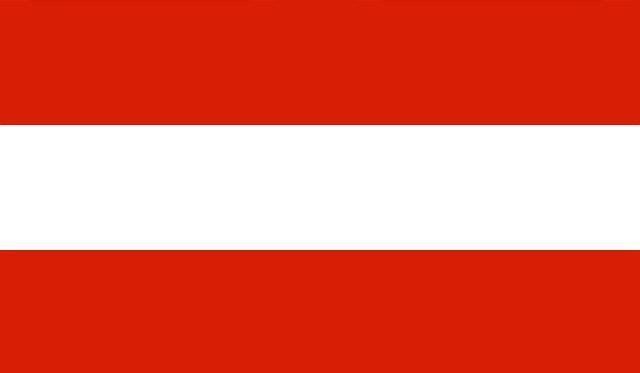

Thank you for watching - the livestream is over now
Did you miss a presentation? No problem: All presentations will be available to listen to / watch online from May 18.
Table of contents
From May 18th you will find all videos of the series "Biodiversity in cities & municipalities of the future" from our online congress "Visions for Transition - How Agriculture and Cities of the Future can save Biodiversity".
- When the world gets sick - and men with it. Global species loss - causes, consequences, risks
Dr. Josef Settele, IPBES, Germany
- Stopping the loss: Biodiversity decline in Austria - and the role of land use
Dr. Franz Essl, Council on biodiversity Austria
- Measured diversity: Biodiversity data for evidence-bades decisions
Dr. Johannes Rüdisser, Department of ecology, University of Innsbruck, Austria
- Vienna's Smart City strategy in the context of global challenges
DI Ina Homeier, Smart City Vienna
- Transition Towns Friesach - a city on its way into the future
Leo Kudlicka, Austrians first Transition Town Initiative
- A biodiversity friendly community - added value and challenges
Ing. Martin Summer, former Mayor of Rankweil, Austria
- Carpathian bio-cultural heritage - a well of wisdom for modern biodiversity conservation
Monika Janisova, PhD, Institute of botany SAS, Slovakia
- Wildlife gardening
Dave Goulson, PhD, University of Sussex, Great Britain
- Promoting biodiversity in communities - the example of Blühlinge
Dr. Martin Wildenberg, GLOBAL 2000 & Mrg. Katka Klimová
Watch all presentations
When the world gets sick - and men with it. Global species loss - causes, consequences, risks
Dr. Josef Settele, IPBES, Germany
The state of nature is deteriorating at an unprecedented rate and the extinction of species is accelerating - with serious consequences for people around the world, warns the new IPBES report. What is the state of the Earth's ecosystems - on land, on the coasts and in the open ocean? To what extent do they enable the seven billion or so people on earth to enjoy an adequate quality of life with food, raw materials and recreation? What needs to be done to secure the ecosystems in the long term? Josef Settele, one of the main authors of the current Global Status Report of the World Biodiversity Council (IPBES), explores this question.
Stopping the loss: Biodiversity decline in Austria - and the role of land use
Dr. Franz Essl, Council on biodiversity Austria
Also in Austria, intact nature is the basis for social well-being. It protects against natural hazards, ensures food production and provides landscapes worth living in. The current objectives, strategies and countermeasures are far from being sufficient to preserve Austria's biodiversity for future generations. The scientific findings are clear, sound proposals for measures are available and must immediately be taken into account at the political level, says the Austrian Biodiversity Council. In his talk Franz Essl will give an overview of the status quo and trends of biodiversity in Austria with a special focus on land use, presenting possible options for action afterwards.
Measured diversity: Biodiversity data for evidence-bades decisions
Dr. Johannes Rüdisser, Department of ecology, University of Innsbruck, Austria
The protection of the remaining biodiversity is one of the biggest and most important global challenges of the 21st century. Biodiversity monitoring - i.e. the systematic and continuous survey of biological diversity - provides the scientific basis for evidence-based decisions in spatial planning, agriculture, nature conservation and environmental protection. Unfortunately, we know surprisingly little about the status of many animal and plant species in Austria. Johannes Rüdisser - initiator of the butterfly monitoring programme "Viel-Falter" - explains the importance and possibilities of systematic biodiversity surveys in Austria using butterflies as an example.
Vienna's Smart City strategy in the context of global challenges
DI Ina Homeier, Smart City Vienna
The global population living in cities is growing – soon more people will live in cities than in other types of settlements. What does this development mean for the world? What challenges are cities facing? What challenges are associated with urbanization? In the Smart City Vienna Framework Strategy, Vienna sets out its strategic goals for sustainable development until 2050. This strategy is thus the city's cross-cutting response to current global challenges that can only be met in a comprehensive and holistic manner. The focus is on climate protection, digitalisation, participation and social inclusion. Among other things, the framework strategy is also a response to the climate crisis: Local greenhouse gas emissions are to be halved by 2030 and reduced by 85 percent by 2050 - both per capita and compared to 2005.
Transition Towns Friesach - a city on its way into the future
Leo Kudlicka, Austrians first Transition Town Initiative
"Transition Town" is a worldwide movement of cultural change and sustainability initiatives where people begin to act and operate differently in their neighbourhoods . In Friesach, the first Transition Town in Carinthia, visions are to be developed and alternatives for a good life in the time of transition are to be tried out. Both locally and regionally viable solutions will be sought in order to be prepared and to be able to act for the upcoming social, societal and economic changes.
A biodiversity friendly community - added value and challenges
Ing. Martin Summer, former Mayor of Rankweil, Austria
For many years, the Vorarlberg community of Rankweil has been committed to the natural design of its green spaces and has thus become a pioneer in the protection of species in the community. Through targeted measures such as the creation of wildflower meadows, the preservation of litter meadows or the erection of natural stone walls, the diversity of species in the municipal area has been significantly increased. At the same time, care was taken to involve the population intensively in the efforts to protect species and to gain a high level of acceptance for the measures taken through an information offensive.
Carpathian bio-cultural heritage - a well of wisdom for modern biodiversity conservation
Monika Janisova, PhD, Institute of botany SAS, Slovakia
The traditional use of grassland in Central Europe has provided high-quality food and clothing for centuries or even millennia. As a side effect of sustainable agriculture some rural areas hold world records in species richness. Traditional farming is still well preserved in several regions of the Carpathian Mountains. Visiting mountain villages of Romania or Ukraine is like time travelling through several decades or even centuries of agricultural history. This is a great opportunity to use the wisdom of our ancestors to keep grassland biodiversity for our descendants. Examples of grassland management practices based on traditional ecological knowledge can serve as an inspiration for developing modern biodiversity conservation strategies applicable in rural regions as well as in a modern landscape.
Wildlife gardening
Dave Goulson, PhD, University of Sussex, Great Britain
We are in the midst of the 6th mass extinction event, with extinctions occurring faster than at any time in the last 65 million years. ‘Bioabundance’ is in decline, with recent studies showing that insects in particular seem to be disappearing fast. If it continues, this will have profound consequences for mankind and for our planet. Dave Goulson will explain why insects are in decline and suggest how we should tackle this crisis by turning our gardens and urban areas into oases for life.
Promoting biodiversity in communities - the example of Blühlinge
Dr. Martin Wildenberg, GLOBAL 2000 & Mgr. Katka Klimová
Within the BLÜHLINGE project, large interactive nodes and smaller stepping stones in the form of flowering areas are established as habitats for butterflies in cities and municipalities in Slovakia and Austria in close cooperation with experienced strategic partners. BLÜHLINGE is a combination of different elements of awareness raising from visual, haptic and scientific elements with Citizen Science character contributing to behavioural change. With a variety of communication strategies and the integration of different media channels, the project focuses on the butterfly as a central indicator of biodiversity. Thus, schools, cities, municipalities, citizens, gardeners and media partners in Slovakia and Austria are working together in a cross-border project on nature conservation solutions and at the same time form the basis for future projects on biodiversity.

